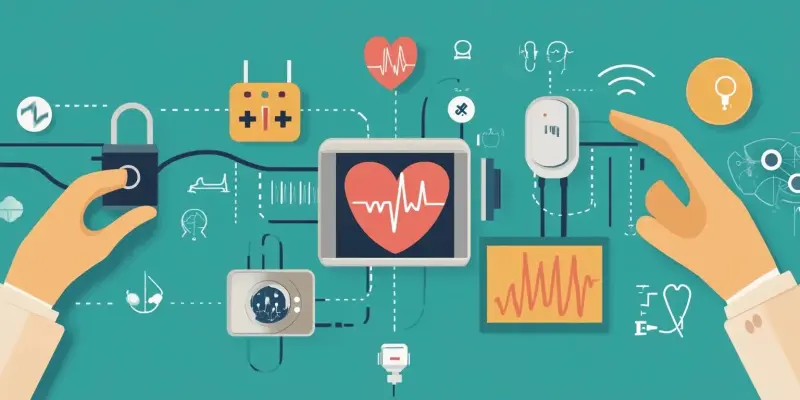The proliferation of Internet of Things (IoT) devices in the healthcare sector has dramatically improved patient care and operational efficiency. These devices, which range from wearable health monitors to smart medical equipment, are now indispensable in modern healthcare settings. However, their rapid adoption has exposed a critical vulnerability: many IoT devices lack robust security measures and are thus susceptible to cyberattacks. This reality raises serious concerns about the protection of sensitive patient information and the overall integrity of healthcare operations.
The Role and Risks of IoT in Healthcare
IoT devices have transformed the healthcare landscape by facilitating real-time patient monitoring, streamlining diagnostics, and enhancing treatment protocols. For instance, continuous glucose monitors allow diabetic patients to track their blood sugar levels seamlessly, while smart infusion pumps ensure accurate medication delivery. These advancements not only improve patient outcomes but also enable healthcare providers to deliver more personalized care. Despite these benefits, the insecure nature of many IoT devices poses a significant threat, as they can be easily exploited by malicious actors to gain unauthorized access to sensitive health data or disrupt critical healthcare services.
The increasing integration of IoT technology into healthcare systems has highlighted the urgent need for improved cybersecurity measures. Many IoT devices are designed with convenience and functionality in mind, often neglecting vital security considerations. This oversight has created a landscape where cybercriminals can exploit vulnerabilities to steal patient data, hijack medical devices, or launch ransomware attacks against healthcare institutions. As a result, healthcare providers must balance the advantages of IoT technology with the imperative to secure their networks and protect patient privacy adequately.
The Necessity of Enhanced Cybersecurity Measures
The rise in cyber threats targeting healthcare IoT devices underscores the necessity for comprehensive cybersecurity strategies. Healthcare organizations must implement rigorous security protocols to safeguard against potential breaches. This includes adopting encryption technologies, ensuring regular software updates, and conducting thorough vulnerability assessments. Moreover, healthcare providers should enforce strict access controls and employ advanced monitoring tools to detect and respond to suspicious activities promptly. By prioritizing cybersecurity, healthcare organizations can mitigate the risks associated with IoT devices and maintain patient trust and safety.
Collaboration between manufacturers, healthcare providers, and cybersecurity experts is crucial in developing and maintaining secure IoT ecosystems. Device manufacturers need to prioritize security at the design stage, incorporating features like secure boot processes, data encryption, and tamper detection mechanisms. Additionally, healthcare organizations should demand transparency from manufacturers regarding the security capabilities of their devices and invest in ongoing staff training to enhance cyber awareness. By fostering a culture of security-consciousness, the healthcare sector can better protect itself against the evolving landscape of cyber threats.
Securing the Future of Healthcare IoT
The rapid growth of Internet of Things (IoT) devices in the healthcare sector has significantly enhanced patient care and operational efficiency. These devices, ranging from wearable health monitors to advanced smart medical equipment, have become essential components in modern healthcare environments. They allow for real-time monitoring and data collection, enabling healthcare providers to make more informed decisions. However, the swift integration of these devices has highlighted a critical concern: many IoT devices are not equipped with strong security measures, making them vulnerable to cyberattacks. This vulnerability raises serious questions about the safeguarding of sensitive patient information and the overall security of healthcare systems. With the increasing reliance on IoT technology, it’s crucial to address these security gaps to ensure the trust and safety of healthcare operations. The need for robust cybersecurity protocols has never been more pressing, as the integrity and reliability of healthcare services are at stake.

